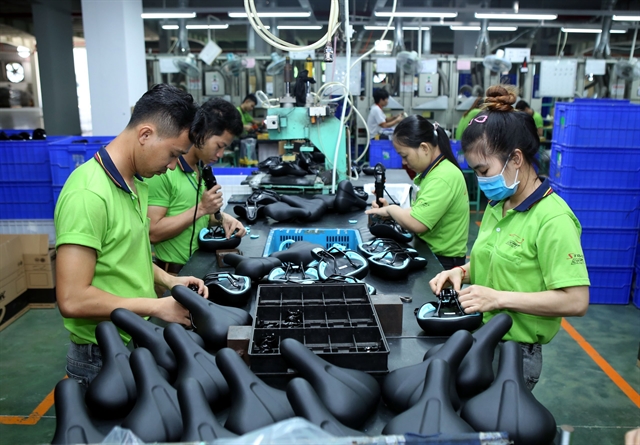Viet Nam is earmarking environmentally friendly, high tech investment to best serve the sustainable growth of the country

Viet Nam is earmarking environmentally friendly, high tech investment to best serve the sustainable growth of the country.
The message was delivered by Minister of Planning and Investment Nguyen Chi Dung at the Vietnam Business Forum (VBF) in Ha Noi on Friday.
Appreciating the contributions made by foreign direct investment (FDI), he said: “FDI is again a bright spot. For the first time, disbursed capital of FDI projects reached US$20.4 billion in 2019.”
He added last year the total registered capital reached more than $38 billion, the highest in the last 10 years.
Dung told the forum: “Viet Nam will continue to select quality FDI projects with high value-added content, high technology and innovation to help the country enter the global value chain faster.”
Chairman of the Viet Nam Chamber of Commerce and Industry (VCCI) and co-chairman of the VBF Consortium, Vu Tien Loc said that local enterprises should work more closely with FDI to make good use of market expansion opportunities and reform.
He added: “It is also a way to facilitate FDI businesses to take deeper roots in Viet Nam’s economy, through the value chains established with domestic businesses.”
Regarding public-private partnerships (PPP), Loc said: “Viet Nam needs up to $25 billion for infrastructure development projects each year.”
He suggested foreign investors should join PPPs to finance the country’s development in the future.
Telling Viet Nam to prioritise “a sustainable economy”, Virginia Foote, co-chair, Vietnam Business Forum Consortium thought innovation could be “the next chapter of Viet Nam’s success.”
She told the forum: “Viet Nam is well known for its talents in science, internet.”
Foote said she believed the country could benefit further from the digital economy with innovations of IT and Fintech, IoT and other smart industries.
But Fred Burke, head of BVF’s investment and trade working group said: “Viet Nam still confronts serious obstacles to maximise its tremendous potential.”
He raised concerns of the foreign investors in the capital limit in the local fintech, saying: “Non-cash payments are critical to innovation, smart cities, and Industry 4.0 but the current draft decree amending Decree No. 101/2012 / ND-CP that imposes a foreign-ownership cap may affect some foreign fintech companies in the country.”
Burke thought the limit could drive out current innovation and prevent other foreign investment while most of the local fintech start-ups raised institutional capital from foreign investors.
As the result, it would restrict the ability of the local fintech firms and make them less competitive with others in the region, said Burke.
Seck Yee Chung, Vice President, Singapore Business Group in Viet Nam said: "The Government should continue efforts to streamline the foreign investment licensing and approval process. This can be achieved with the use of emails of courier between licensing authorities and regulators. "
Chung also asked the Government to develop the use of online applications for foreign investment and M&A approvals.
VBF is organised twice a year, providing regular policy dialogues between the Government and business community aiming at a favourable business environment and sustainable economic development in Viet Nam. — VNS





